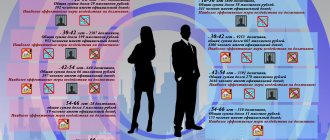Actions of the bailiff related to the receipt of alimony
Bailiffs are officials, have among their responsibilities the implementation of court decisions, including the collection of alimony , as well as arrears thereon. In order for a person to exercise these rights and perform actions related to debt collection, he must have a document. It serves as the basis for opening court cases in which further work is carried out. Bailiffs of official duties, including:
- Calling the debtor and the recipient of alimony to obtain the necessary information. For example, for whatever reason, one party refuses to pay.
- Get the information he needs and check the facts. Through authorities or services, find out the place of work, send a request to the debtor, take the necessary actions regarding identifying the size of the property.
- Require the manager to withhold the appropriate amount of alimony for the execution of court decisions, which can subsequently be paid through the bailiffs .
- Go to the debtor’s place of residence and visit the premises that belong to him. This is necessary to determine the solvency of a person before implementing court decisions.
- Prohibit the debtor from leaving the state.
- Bailiffs the right to seize property to the extent of the debt to pay alimony , as well as to carry out court orders. The debtor will also have to pay for enforcement proceedings.
- Through the bailiffs , a person, as well as his property, can be put on the wanted list.
Bailiffs have the right to take measures against the defaulter that are prescribed by law .
The order of work of bailiffs on alimony
Perhaps you are a recipient of alimony and are holding a writ of execution in your hands? So, it's time to give it a go. If you know the address, then feel free to go to the place of work of your ex-husband (wife). Or, if he (she) is a pensioner, go to where the pension is calculated.
But this should only be done if the father (mother) of the child is a law-abiding person and does not shy away from supporting his child. What if you are unlucky and your ex-spouse does not want to pay alimony? Then everything is more complicated: you shouldn’t take risks trying to get money out on your own. The wisest thing to do is to turn to the Bailiff Service (UFSPP) for help.
Let's talk on the topic: “Alimony and bailiffs”, discussing all the key points.
Reasons for contacting bailiffs
Let's define what a bailiff is? This is a person vested with official powers to execute court decisions and orders regarding alimony.
In order for bailiffs to begin work, executing a court decision on alimony, they must have a writ of execution. Only if it is available, bailiffs have the right to carry out their activities.
The reason for seeking help from the FSSP is the presence of the following grounds:
- open enforcement proceedings;
- evasion of the alimony payer from its obligations;
- presence of debt and penalty;
- availability of a court decision/court order or writ of execution form.
Documentary package for appealing to bailiffs
Let's talk about what documents are needed to submit alimony to the bailiff service:
- Identification.
- Baby's birth document.
Package of documents for the right to receive children's money:
- performance list;
- court decision;
- court order (if the alimony issue is considered in writ proceedings);
- consent from the debtor to pay money and receive a court order.
- Bank details for money transfers.
Application for alimony to be submitted to the FSSP
The application must indicate reliable data and attach to it a package of documents that can confirm the financial and property status of the debtor: extracts, certificates, etc.
Here is a sample application for alimony to bailiffs:
The procedure for collecting alimony forcibly and arrears thereon through bailiffs
A component of the bailiff’s work is the collection of alimony debt. According to statistics, most fathers do not want to pay money for their child, cynically ignoring notifications from the FSSP.
We remind you! The mother receiving alimony is required to submit a petition to the bailiff demanding payment of the debt; and receive a certificate indicating the entire debt amount, along with the penalty. With this paper, the woman must go to court for a writ of execution to collect the alimony debt.
After the sheet, or court order, is placed on the desk of the bailiff service officer, the collection process will immediately begin. The collection procedure includes the following template of mandatory actions:
- amounts higher than normal monthly payments are withheld from the alimony payer’s income until all alimony debt is paid off;
- additional sources of income for the alimony payer are determined (for example, income from a deposit, profit from securities);
- the price of the debtor's property fund is determined;
- the debtor's bank account is seized, and all seized funds are sent to the recoverer;
- the property fund of the alimony payer is sold, and all the money goes to pay off the debt.
Responsibilities and rights that bailiffs have in the matter of collecting alimony
Let's consider the range of rights and responsibilities that the law gives to bailiffs. They have the right:
- Call the alimony debtor, the money collector and officials in order to collect the required documentation and information to get an answer to the question: “Why does the payer not want to pay alimony?”
- Receive any information, check it, make inquiries, and make inquiries. Bailiffs have the right to establish the place of work of the negligent parent in order to make a request about the amount of the debtor’s salary. Bailiffs submit requests to the traffic police, require an extract from the Unified State Register of Real Estate in order to determine whether the debtor has property, and how to force him to repay the debt?
- Demand that the debtor's management regularly collect money for the child from the salary, in the amount determined by the writ of execution. The money claimed in this way, according to the entire form of the law, must be transferred to the recipient’s current account within 76 hours from the date of receipt of the salary.
- Carry out trips to any area, at the place of residence and stay of the payer; visit the premises that belong to him to identify the property status.
- Collect the property of the alimony payer, but only in the amount that covers the debt and the costs of enforcement proceedings.
- Seize the debtor's bank accounts and collect them in favor of the creditor.
- Carry out actions to put the defaulter, and all his property, on the wanted list.
- To impose a ban on the debtor's right to reside outside of Russia.
- Impose a temporary restriction on driving a car.
At the same time, the bailiff is authorized to try on the child benefit debtor at the same time the entire range of punitive measures presented above.
Loss of case materials: procedure and consequences
The situation with the loss of materials for alimony collection occurs extremely rarely. But, since this can still happen, we suggest that you familiarize yourself with the correct algorithm of actions in this situation.
https://www.youtube.com/watch?v=sEmfM46hmVA
Departments in the FSSP maintain registration in journals specially designed for this purpose. They record the movements of all cases, so nothing can disappear without a trace.
Note! The case may get “lost” due to the banal negligence of a particular employee. For his obvious desire to remain inactive, rest assured, he will be punished.
For example, if you discover a missing file and understand that an FSSP employee is to blame, then you will need:
- Write a letter of complaint - a claim to the district prosecutor's office. The text of the complaint must describe in detail the circumstances and process of enforcement proceedings. As a rule, as soon as the Prosecutor’s Office initiates the verification procedure, a “loss” is immediately found.
- Draw up a petition to the judicial authority that issued the verdict, asking to issue duplicates of the decision and writ of execution.
- Submit an application to reopen enforcement proceedings.
Important! Unfortunately, if the file was actually lost, then it will be very difficult to completely restore it.
How to find information in the database?
There are two ways to obtain and check information on alimony debt:
- Method No. 1 – contact the FSSP .
- Method number 2 – visit the State portal. Services .
We propose to analyze both ways of obtaining information.
Find out information using the FSSP website
The official portal of bailiffs has a database that includes information on all alimony cases that are conducted in all Russian cities, from Moscow and Yaroslavl to Irkutsk and Krasnoyarsk. This fact should be regarded as an absolute plus: now searching and obtaining the necessary information has become possible from anywhere in Russia.
Note! The FSSP information base is updated every day. It contains information about each alimony payer, such as: Full name of the debtor / recipient of the money, amount of debt and time of delay.
Here is an algorithm for the order of necessary actions:
- We look in the search engine for an item called “ Territorial authorities ” at the place of residence of the alimony payer - debtor
- select the item “ Information systems ”
- follow the address link with the name “ Data Bank of Enforcement Proceedings ”
- find a search by last name and enter the full name of the debtor (in the nominative singular).
Important information! If the enforcement proceedings number is known, entering it will significantly speed up the search process. Write the details of the case in the column called “ Search by enforcement proceedings number .”
We receive information using the State portal. Services
This portal is ideal for searching for debts and paying off fees. It's easy to use and has perfectly designed navigation. For example, in order to pay children’s money on this portal, you just need to follow the link “ Transfer of alimony ”.
To find out the amount of debt, you need to do the following:
- register on the portal based on your passport and phone number;
- then go to the category called “ Authorities ”, which is located in the “ Electronic government ” menu item;
- Next, you need to find a special link to the FSSP Ministry of Justice of the Russian Federation
- a list of services will appear. In it you need to select a service called “ Providing information on ongoing production ”;
- then you need to write the full name of the alimony payer. If you have more information, then also indicate the details of the enforcement proceedings;
- and finally click on the “ Get Services ” button.
You should know! The result you receive can be stored electronically, downloaded and, if necessary, sent to print.
A useful “gift” from the FSSP to all payers and recipients
In 2021, the FSSP released an official application, but in a mobile version. In 2021, it became available on platforms such as IOs , Android and Windows Phone . And, on social networks such as: , .
The entire database of alimony debtors is presented there, with a convenient opportunity to pay.
Is it possible to change the bailiff?
There are situations in which neither the claimant nor the payer are categorically satisfied with the work of bailiffs in collecting child support: neither the work of a particular bailiff, nor his moral and personal qualities.
Despite the fact that bailiffs are purely officials, guided only by legislation and professional duties, they are, first of all, people.
Unfortunately, they can afford bias, deception, and even extortion.
The question of whether it is possible to replace the bailiff in some situations is fundamental. The law does not provide for this possibility.
Note! First of all, you should draw up a complaint against the actions of the bailiff and send it to a higher bailiff or directly to the prosecutor. Be sure that upon receiving such a complaint, management will not “pat your employee on the head” and will force him to change his style of behavior, and he will start working in a completely different way.
There are often cases when a particular bailiff has no right to carry out his actions at all: if he is a friend or relative of the person collecting, or an acquaintance of the debtor. Such an employee is obliged to make a decision to recuse himself, otherwise a complaint should be written against him, with a clear evidentiary argument for his demand.
Summary
The bailiff service is, in fact, a kind of “headquarters” where the bulk of the work related to the collection of debts on alimony payments takes place.
Bailiffs collecting alimony must carry out the entire range of actions established by law, in order not only to identify, but also to force the negligent parent to fulfill his parental duty in relation to a child under 18 years of age.
Source: https://porazvodu.ru/alimenty/sudebnye-pristavy
Appeal to the bailiff
The duration of visits to bailiffs to assist in the implementation of court orders is not limited. This can be done practically any time: from receiving an official document until the child reaches adulthood. An eighteen-year-old citizen can independently contact the bailiff to recover through him the amount for the past years: for this the period is fixed and is three years. Only after this the opportunity to receive alimony will be terminated.
When the recipient of alimony contacts the bailiff untimely, but wishes to belatedly demand funds that are rightfully due, it will only be possible to recover the amount for the last three years. Often the document is transferred immediately, then the funds that are not paid by the debtor automatically become a debt to which penalties are attached. This amount will have to be paid through bailiffs .
How to calculate alimony debt, methods
For each day of late payment, a 0.5% penalty is charged.
A logical question arises: how to find out about the amount of debt at the moment? This will be discussed in this article.
In the age of high technology, the most popular and fastest way to find out about debt is the Internet. In the vastness of the World Wide Web you will be helped by:
As a rule, online methods show the exact amounts of debts. However, sometimes due to technical reasons, electronic resources are updated with a slight delay. That is why it is always better to check the amount of debt directly with the bailiff by making an appointment or calling.
In addition, an official document indicating the amount of debt can only be requested through a personal appointment.
Where can I find a bailiff?
bailiffs work varies. There are such specialists in all territorial units of the state. You should look for the department at the debtor’s place of residence, knowing his exact address. To begin proceedings regarding alimony who refuse to pay, one of these documents must be submitted:
- A executed writ of execution issued after receiving court decisions regarding the collection of alimony .
- A corresponding order indicating the collection of alimony ;
- Extract from previously adopted court decisions, if the writ of execution was lost;
- An agreement to pay alimony , which is certified by a notary.
If the debtor decides I want to pay alimony through the bailiffs , he needs to provide a passport.
Obtaining information about debt through a bailiff
You can find out information about alimony debt from the bailiff in three ways:
- using the phone;
- by making an appointment with a bailiff, in person;
- receiving information in writing.
How to find out information about accumulated debt by phone
You can find out the phone number of your bailiff using the official website of the Federal Bailiff Service or by calling the telephone helpline in your region.
On the FSSP website there is a “contacts” section at the bottom. In this section, using the “Service for determining the OSB by address,” you can find out the phone number of the OSB, which you need to call to obtain information about the debt.
By going to this service (fourth from the bottom in the “contacts” section), you need to enter your home address for which the writ of execution was issued, and the system will instantly give you the phone number you need. In addition, you can find out the phone number of the bailiff using the FSSP website in the “Data Bank of Enforcement Proceedings” section, since along with information about the alimony debt you are provided with the phone number of your bailiff directly.
How to find out information about debt at a personal meeting with a bailiff
In order to obtain information about the debt in person from the bailiff, you only need to know the address of your OSP. The address can be found using the FSSP website in the same way as a telephone number, or by calling the OSP directly. It is recommended to make an appointment before visiting the bailiff to avoid long queues. To receive information, you will only need to provide your full name and date of birth. It should be noted that presentation of an identity document is not required.
How to obtain information about alimony debt in writing
In order to receive an official document about the amount of debt, you must make an appointment with a bailiff. The bailiff has the right to provide such information only on the basis of an application. Thus, you need to draw up an application in any form with a request to issue a debt order for a certain period, indicating your personal data.
By law, your application must be reviewed within 10 days and the document must be issued. However, bailiffs are often unwilling to work. In this case, you need to write a complaint addressed to the senior bailiff, and the problem will be resolved.
Thus, the state largely accommodates both debtors and other interested parties, providing the right to obtain the necessary information about alimony debt in the most convenient way for them.
Performer's procedure
To begin enforcement proceedings through bailiffs , you should write a letter of application, as well as provide all known information regarding place of residence, work or salary. Information about the availability of real estate at the debtor will be important.
In order for alimony to be calculated, the application is first reviewed by the head of the bailiffs , and later it is transferred to a certain employee. Within three days, he makes a decision regarding enforcement proceedings. The beginning of work related to the implementation of court decisions consists of a mandatory conversation with the future payer. When an agreement is reached between him and the contractor on the amount of payments, a message about all payments made. In the absence of additional payments, the bailiff has the right to forcefully collect alimony . The establishment of a place of employment is carried out by contacting the necessary authorities and tax authorities.
How to find out alimony debt by last name
Finding out the alimony debt by last name - this need sometimes arises from those in whose favor alimony is assigned, or from the one who legally represents the interests of the recipient. There are many options for solving this issue - from a visit to the bailiff to the use of modern technologies.
How to find out the alimony debt, knowing the debtor's last name?
The obligation to pay alimony is established by law, but not everyone, unfortunately, fulfills it in a timely manner. If alimony is not paid on time, the payer will develop a debt. How can you find out its amount?
It should be said right away: it is possible to determine how much a person owes in alimony only if the collection has already been made officially, that is, through bailiffs. If an agreement on alimony has been concluded, but the recipient (or a representative of a minor/incapacitated recipient) has not contacted the bailiffs, the debt will have to be calculated independently.
The methods by which you can find out the debt themselves are divided into 2 groups:
Traditional, not requiring new technologies.
Using the Internet.
Let's look at each of them separately.
How to find out the amount of alimony debt from the bailiff?
If you need to find out the amount of alimony debt, then it is enough to come to an appointment with the bailiff, who is engaged in collection from the debtor. To obtain information, just give the payer’s name and the bailiff will provide all the necessary information.
However, this method has a number of disadvantages:
You will need to find out when the bailiff is on site and receiving citizens.
You'll have to wait in line. Usually a lot of people come to the bailiffs during reception hours. You will either have to wait until it comes to you, or be the very first.
The bailiff provides information either to the recipient or to the payer himself. If you are simply somehow interested in information on the amount of debt, but are an outsider, he may refuse to disclose it.
If you are not satisfied with a personal visit, you can send a written request to the bailiff department. The answer will be given in writing, it can be used officially - however, this can take at best from 3 to 10 days. The letter must first be delivered to the bailiffs (this is at least 2 days, even if it is sent in the same city), then go through their office, then the bailiff will write a response and send it. In short, this method is extremely time-consuming.
Finally, you can try to call the bailiff and find out the amount over the phone. There is no need to waste time standing in line, but you still need to catch the bailiff in the office when he has the necessary material in his hands. Each FSPP employee has a lot of work to do, and it is unlikely that the bailiff will immediately remember the necessary numbers for a specific person.
How to find out the amount of alimony debt by the debtor's last name online?
We live in the 21st century, and new technologies help us receive information without unnecessary problems. If you have access to the Internet, the best way is to go to the official website of the FSPP, go to the section of your regional unit and ask a request on a special page.
You only need to know the last name, first name and patronymic of the alimony debtor. It’s even better if you know the number that was previously assigned to his case - this will ensure that there are no mistakes and the information will definitely be found. The information on the website is regularly updated, so the FSPP database accurately reflects the current amount of debt.
How to find out the alimony debt through the state portal?
Another option would be to go to the State Services portal. True, you will need to register there, however:
this procedure is simple and accessible to any, even not very technically literate, user;
Registration will also be useful later if you need to order a passport exchange or other service from government agencies.
After registering and logging in, you must first select the section of the Ministry of Justice of the Russian Federation, then the subsection of the FSPP. There you can already search by sending a request to the database of open industries. Information will be provided almost instantly. Search results can be either saved electronically or immediately printed if you have a printer.
Other ways to find out your child support debt
In addition to the official websites of government bodies, there are other resources where you can get the necessary information:
Social media. Many of them now have applications that allow you to quickly track the status of the alimony debt of interest. Information is updated more or less promptly. Although it is less accurate than that received from official sites, it allows one to navigate based on the current situation.
Applications for mobile devices. Users of smartphones, tablets and other similar equipment can download a special program that will receive mailings on the status of the debt and show its owner the current status of a specific alimony debt.
What specific information can be found online?
Using websites or mobile applications, you can obtain the following information from the database:
the actual amount of alimony debt;
the number of the case being processed by the FSPP (it will be useful if you have to officially communicate with this service: send requests, file complaints about the actions of bailiffs or their inaction, etc.);
details of the specific bailiff involved in collection (knowing them, you can contact him and, if necessary, arrange an appointment or send a request).
Powers of the bailiff
Having received the writ of execution, any of the judicial commissioners is allowed to proceed to debt collection, which involves a number of actions:
- of alimony may be withheld from the debtor's salary . Such measures are taken until the debt is repaid.
- Types of income that are additional are identified: payments or securities.
- Bailiffs have the authority to identify property that belongs to the debtor and assess its value.
- The accounts are seized, and the proceeds from them are used to compensate the debt.
If the process of paying funds through judicial commissioners is delayed, a change of official is possible. An additional reason may be bias or deception. To change the bailiff, you should write a letter to his superior management or the prosecutor. Upon receiving a complaint, the manager will change the person in charge or take other measures. When drawing up a letter, you should attach documents that confirm payment or, conversely, the existence of a debt.
If the case is lost, it is possible to go to court to confirm the decision to pay alimony . Thus, a duplicate of the document will be received. The corresponding enforcement proceedings will be reopened.










